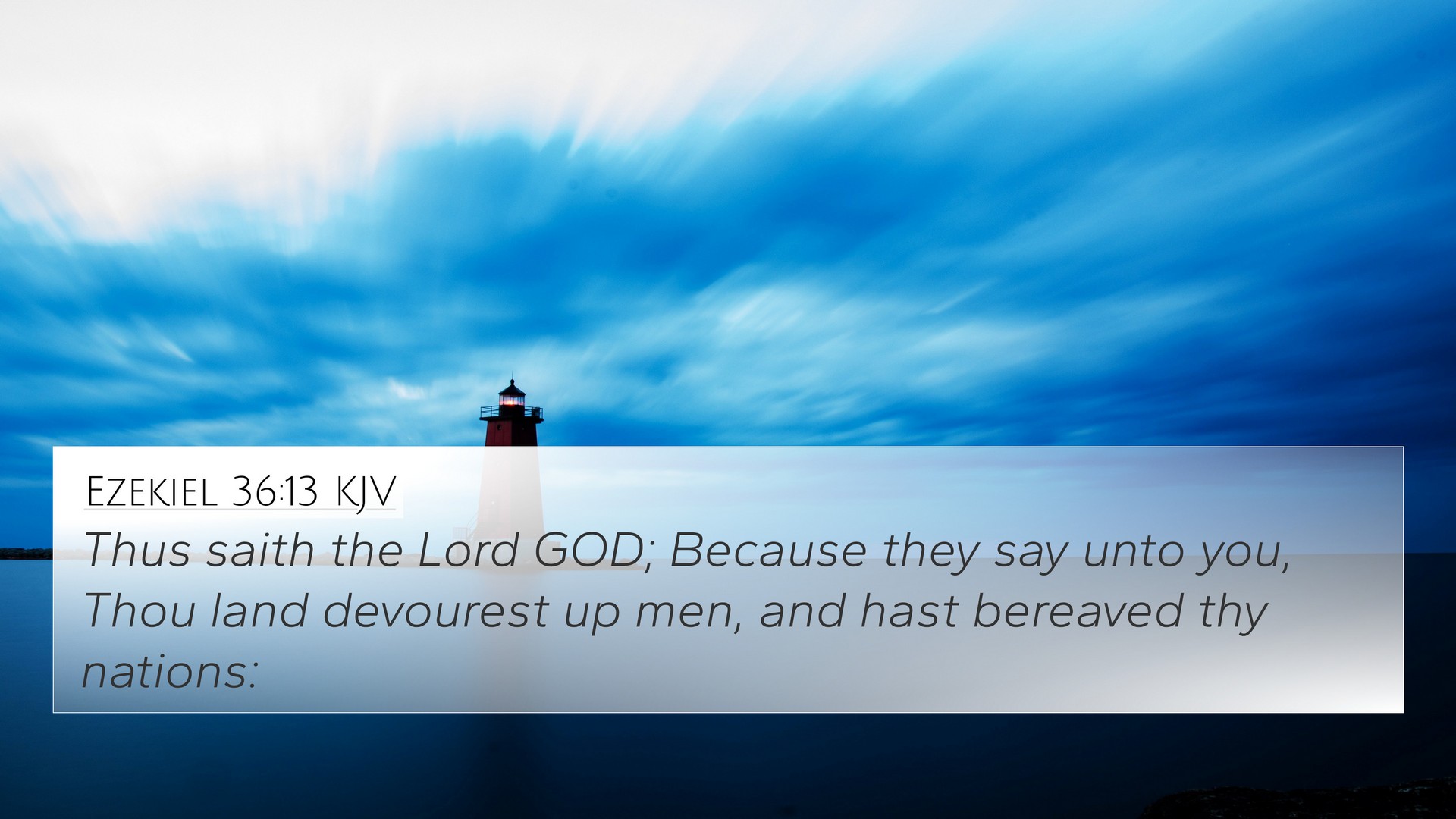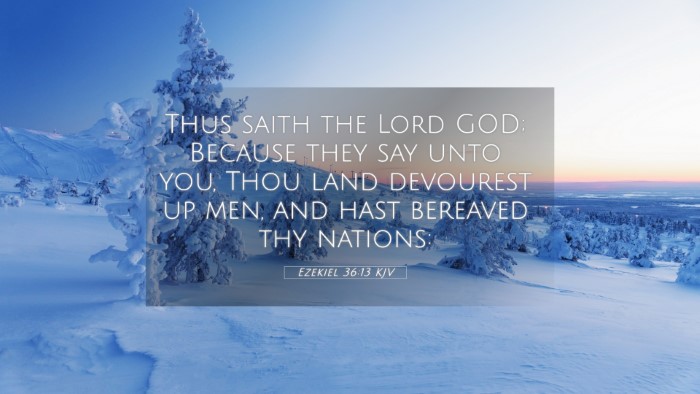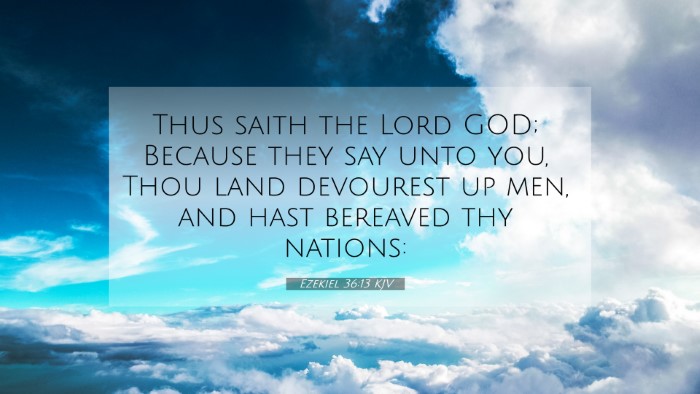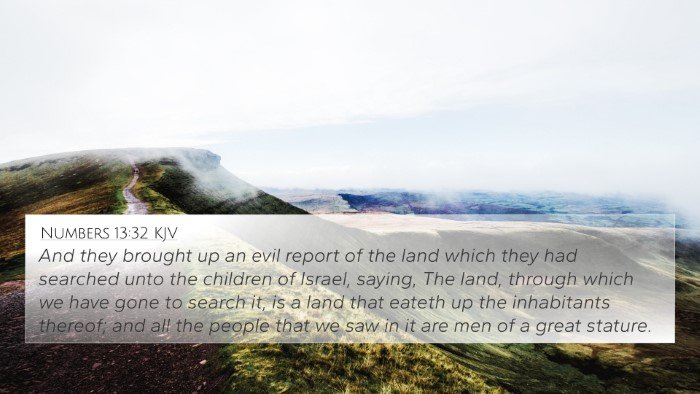Ezekiel 36:13 - Meaning and Interpretation
Ezekiel 36:13 states, “Thus saith the Lord God; Because they say unto you, Thou land devourest up men, and hast bereaved thy nations;” This verse speaks to the land of Israel and its historical context of devastation and desolation.
Context and Overview
The Book of Ezekiel is a prophetic text that addresses the Israelites during their Babylonian exile. This particular verse can be viewed as part of a larger message of restoration and hope after a period of judgment.
Historical Background
The Israelites had suffered greatly due to their sins, leading to their exile. They were perceived as a land that had consumed its inhabitants, and the verse reflects the despair and accusations directed toward the nation. Such contexts are pivotal for understanding God's intentions for His people.
Commentary Insights
- Matthew Henry: He emphasizes God's redemptive purpose in restoring Israel despite their transgressions. The land was not merely barren; it awaited rejuvenation as the people turn back to God.
- Albert Barnes: He explains that this accusation reveals the depths of the people’s despair. The Lord promises to transform the land from a place of devastation to one that flourishes, illustrating God's grace and sovereignty.
- Adam Clarke: Clarke notes that the verse prepares the way for the subsequent promises of regeneration. It highlights the relationship between the land and its people—a theme seen throughout scripture.
Bible Verse Cross-References
- Isaiah 54:1: A call to sing and rejoice for Israel's restoration and future blessings.
- Ezekiel 34:13: God's promise to bring His people back to their land.
- Jeremiah 30:17: A promise of healing and restoration for Israel.
- Hosea 1:10: The transformation of a people previously called "not my people" to "children of the living God."
- Revelation 21:4: The ultimate promise of no more death and sorrow for God's people.
- Psalms 126:1: The joy of returning to their homeland after exile.
- Romans 11:26: The future salvation of Israel as part of God's redemptive plan.
Thematic Connections
The theme of restoration is prevalent in the Scriptures. From the Old Testament prophets like Ezekiel and Isaiah to the New Testament promises, the heart of God is revealed as one who desires restoration for His creation.
Comparative Bible Verse Analysis
When comparing Ezekiel 36:13 with other verses that speak of hope and restoration, one can see a consistent message throughout the Biblical narrative:
- Connections between Old and New Testament: Ezekiel’s proclamation correlates with the fulfillment of God’s plan in Christ, demonstrating that hope is a recurring theme through both Testaments.
- Cross-referencing Biblical texts: Verses like 2 Corinthians 5:17, which speaks of becoming a new creation, reflects the renewal promised for Israel.
Tools for Bible Cross-Referencing
To dive deeper into the interrelations of Biblical texts, several resources can aid in studying cross-referenced meanings:
- Bible Concordances: They provide indices of key words to find related verses.
- Bible Reference Resources: Materials like commentaries offer insights into connections across scriptures.
- Cross-reference Bible Study Guides: Tools specifically designed for finding thematic connections.
User Intent Keywords
For those exploring the connections surrounding Ezekiel 36:13, questions may arise such as:
- What verses are related to the themes in this verse?
- How do Ezekiel's promises correlate with the messages found in the Gospels?
- What similarities exist between this verse and historical events described in other prophetic texts?
Conclusion
Understanding Ezekiel 36:13 through the lens of historical context and prophetic fulfillment reveals a deep biblical message of hope and renewal. By employing tools for cross-referencing and engaging in comparative Bible verse analysis, readers can enrich their understanding of the restorative nature of God's promises, enhancing their study of scripture.



